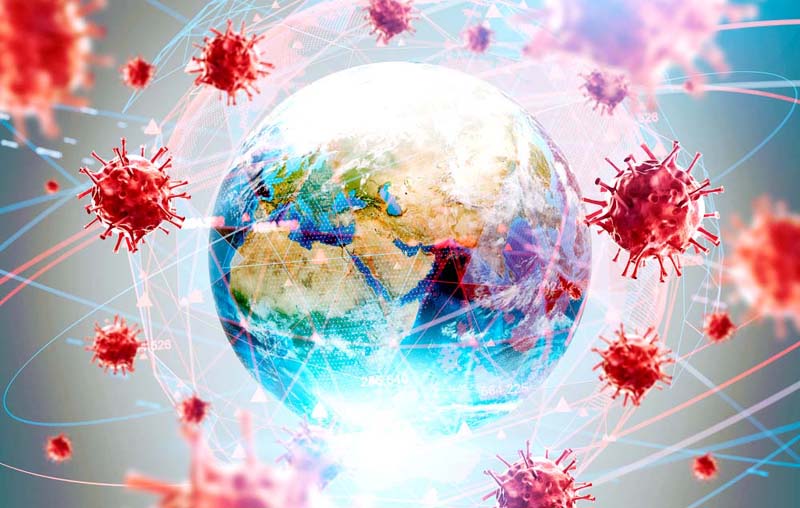NEW DELHI, Apr 9:
When showbiz celebrities talk, people listen, lending a special ear to the men and women they have elevated to demi-god status, every comment from them in these pandemic days standing out in the deluge of COVID-19 information.
And there lie the perils of stardom, warn experts.
As anxiety levels spiral and millions of people confined to their homes grapple with an overload of coronavirus information on various social media platforms, showbiz and other stars have to weigh each word they say or write, they said. Not doing so can have life threatening consequences.
“There is a lot of awe and respect for celebrities. People really worship them. But when big names who have so much social capital put out misinformation, it can be dangerous, especially in these times when misinformation can mean more deaths,” Pratik Sinha, editor of the fact checking website AltNews, said.
The issue is under the spotlight again with Amitabh Bachchan, Rajinikanth and Mohanlal, among India’s biggest stars with millions of followers on social media, in various controversies over misinformation and fake news.
All three were featured in the short film “Family”, which talks about the importance of social distancing and the need to protect the daily wagers who prop the film industry.
“Compared to many countries in the West, in India, there is far less scepticism towards celebrities. The lack of criticism of celebrities relates to the more general valourisation of hierarchies. This means that misinformation propagated by celebrities is more likely to lead to very serious consequences,” sociologist Sanjay Srivastava said.
Bachchan, who has more than 40 million followers on Twitter, was subjected to a lot of flak for retweeting a post that showed an illuminated India following Prime Minister Narendra Modi’s appeal to people to switch off lights at their homes and light lamps, candles, diyas and mobile phone torches on Sunday.
But it turned out to be a fake post.
Bachchan was earlier called out for another tweet when he shared an opinion claiming vibrations from clapping, blowing conch shells as part of the ‘Janta curfew’ on March 22 would have reduced or destroyed coronavirus potency as it was ‘amavasya’, the darkest day of the month.
He also shared a video as part of the Swachh Bharat campaign where he cited a Lancet study claiming that Chinese experts believe COVID-19 spreads through flies.
The now-deleted video shared from the actor’s page on March 25 read: “A study in the @TheLancet shows that coronavirus lingers on human excreta much longer than in respiratory samples. Come on India, we are going to fight this! Use your toilet: Everyone, Everyday, Always. Darwaza Band toh Beemari Band! @swcrbrt @narendramodi @PMOIndia Pickvitrkcom/VSMUHdjXKG.”
Twitter recently removed a video uploaded by actor-turned-politician Rajinikanth on the one-day ‘Janta curfew”, two days ahead of Prime Minister Narendra Modi’s March 24 announcement of a three-week nationwide lockdown.
“To prevent community transmission, the virus needs to be curbed totally for 12 to 14 hours. With the prime minister calling for ‘Janta curfew’ on March 22, India prepares to avoid crucial Stage 3 community transmission of coronavirus in the country,” the Tamil cinema icon said in a video message shared on March 19.
The video was reportedly pulled down as it violated Twitter’s rules on misinformation.
On March 21, a day ahead of the ‘Janta curfew’ when many people in India came out on their balconies banging plates as a tribute to healthworkers fighting the pandemic, Malayalam star Mohanlal told Manorama News channel that doing so may kill the virus.
“Clapping together is a process. The sound produced is like a mantram (chant) and there is a possibility that many bacteria and virus will be destroyed. Let it all get destroyed. I urge everybody to cooperate,” the actor had said.
Puducherry Lieutenant Governor Kiran Bedi was also trolled on Twitter for sharing a video of chickens, which she claimed had hatched from eggs discarded due to the coronavirus outbreak.
Misinformation is being shared by all sections of the society, and this issue of “information illiteracy” is even more visible with respect to the COVID-19 outbreak, said Sinha. (PTI)


